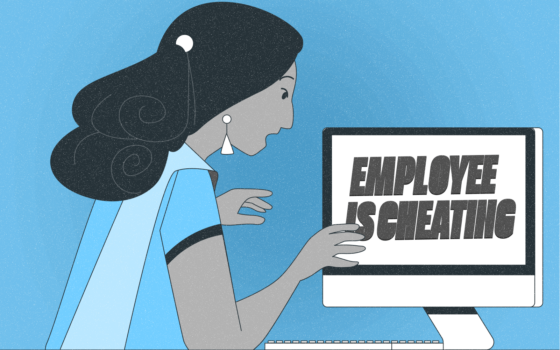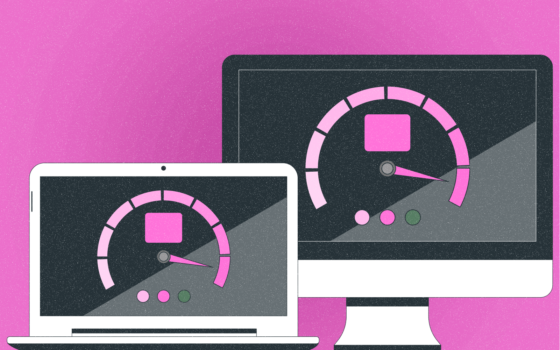What Is Metacognitive Awareness?
Metacognitive awareness is the ability to understand and monitor one's own cognitive processes. It involves self-reflection, critical thinking, and the capacity to regulate one's learning strategies. This skill is crucial for effective problem-solving, decision-making, and personal development in both professional and educational settings.
Metacognitive awareness, a cornerstone of modern learning theory and cognitive psychology, has become increasingly relevant in the field of Human Resources (HR) and organizational development. As businesses navigate the complexities of the 21st-century workplace, the ability of employees to understand and regulate their own thought processes has emerged as a critical factor in driving innovation, improving performance, and fostering adaptability.
Understanding Metacognitive Awareness
Metacognitive awareness refers to an individual's understanding of their own cognitive processes and the ability to monitor, control, and evaluate these processes. It's essentially "thinking about thinking" or being aware of one's own awareness. This concept was first introduced by John Flavell in the 1970s and has since gained significant traction in educational psychology, cognitive science, and more recently, in organizational behavior studies.
Components of Metacognitive Awareness
Metacognitive awareness comprises two primary components:
| Component | Description |
| Metacognitive Knowledge | Understanding of one's own cognitive abilities, tasks, and strategies |
| Metacognitive Regulation | The ability to control and manage cognitive processes |
These components work in tandem to enable individuals to reflect on their thought processes, identify strengths and weaknesses, and implement strategies to enhance learning and problem-solving abilities.
The Importance of Metacognitive Awareness in the Workplace
In the context of HR and organizational development, metacognitive awareness plays a crucial role in several areas:
- Enhanced Learning and Development: Employees with high metacognitive awareness are better equipped to identify their learning needs and adopt effective strategies for skill acquisition.
- Improved Problem-Solving: By understanding their own thought processes, individuals can approach complex problems more systematically and creatively.
- Increased Adaptability: In rapidly changing work environments, metacognitive awareness enables employees to quickly assess and adjust their approaches to new challenges.
- Better Decision-Making: Awareness of one's cognitive biases and thought patterns can lead to more informed and balanced decision-making.
- Enhanced Collaboration: Understanding one's own thinking processes can improve communication and collaboration within teams.
Measuring Metacognitive Awareness
Assessing metacognitive awareness in the workplace can be challenging due to its introspective nature. However, several tools and methods have been developed to measure this important skill:
| Assessment Tool | Description | Application in HR |
| Metacognitive Awareness Inventory (MAI) | A 52-item self-report questionnaire | Used in employee development programs and talent assessment |
| Think-Aloud Protocols | Participants verbalize their thoughts while performing tasks | Useful in training and performance improvement initiatives |
| Behavioral Observation | Observing problem-solving behaviors and strategies | Applied in performance evaluations and team dynamics assessments |
| Reflective Journaling | Employees document their thought processes and learning experiences | Incorporated in professional development plans and coaching programs |
Developing Metacognitive Awareness in the Workplace
HR professionals and organizational leaders can implement various strategies to foster metacognitive awareness among employees:
- Training Programs: Develop workshops and seminars focused on metacognitive skills, critical thinking, and self-reflection.
- Mentoring and Coaching: Establish mentoring relationships that encourage discussion and analysis of thought processes.
- Reflective Practice: Incorporate regular reflection sessions into project cycles and performance reviews.
- Feedback Mechanisms: Implement 360-degree feedback systems that include assessments of metacognitive skills.
- Technology-Aided Learning: Utilize e-learning platforms that incorporate metacognitive strategies and self-assessment tools.
Challenges in Promoting Metacognitive Awareness
While the benefits of metacognitive awareness are clear, organizations may face several challenges in fostering this skill:
- Resistance to Change: Some employees may be reluctant to engage in self-reflection or change established thought patterns.
- Time Constraints: Developing metacognitive skills requires time and practice, which can be challenging in fast-paced work environments.
- Measurement Difficulties: Quantifying improvements in metacognitive awareness can be complex, making it challenging to demonstrate ROI.
- Cultural Differences: Metacognitive practices may vary across cultures, requiring tailored approaches in global organizations.
- Integration with Existing Systems: Incorporating metacognitive awareness into established HR processes and systems may require significant changes.
The Future of Metacognitive Awareness in HR
As we look towards the future, several trends are likely to shape the role of metacognitive awareness in HR:
- AI and Machine Learning: Advanced AI systems may help in assessing and developing metacognitive skills more accurately.
- Personalized Learning: Tailored metacognitive development programs based on individual cognitive profiles.
- Virtual Reality (VR) Training: Immersive VR experiences for practicing metacognitive strategies in simulated work scenarios.
- Neurofeedback: Integration of neurofeedback techniques to enhance metacognitive awareness.
- Cross-Disciplinary Approaches: Increased collaboration between HR, neuroscience, and cognitive psychology to develop more effective metacognitive tools.
Conclusion
Metacognitive awareness represents a powerful tool for enhancing individual and organizational performance. As the workplace continues to evolve, the ability to understand and regulate one's own cognitive processes will become increasingly valuable. HR professionals play a crucial role in fostering this skill, creating environments that encourage self-reflection, critical thinking, and continuous learning.
By integrating metacognitive awareness into HR strategies, organizations can cultivate a workforce that is not only more productive and innovative but also more adaptable to the challenges of an ever-changing business landscape. As we move forward, the development of metacognitive skills will likely become a key differentiator in organizational success and individual career advancement.
Additional Resources
For HR professionals looking to delve deeper into metacognitive awareness, the following resources provide valuable insights:
- • Cognitive Processes in Learning
- • Society for Human Resource Management – Organizational and Employee Development
- • Chartered Institute of Personnel and Development – Learning and Development
By embracing metacognitive awareness, HR professionals can lead the charge in creating more thoughtful, adaptable, and high-performing organizations ready to thrive in the complexities of the modern business world.


